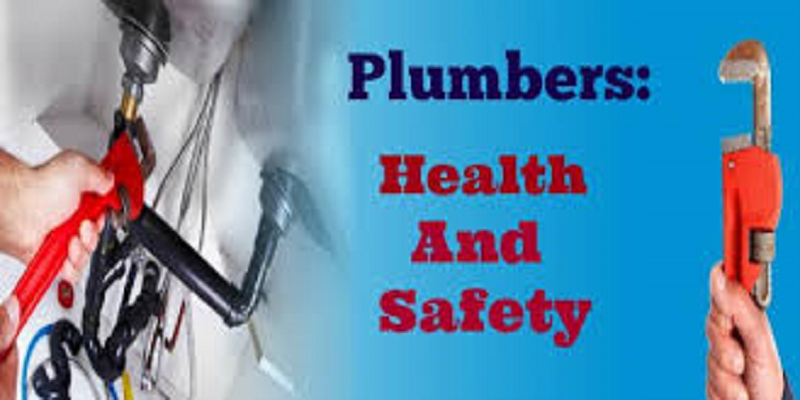Plumbing is likely something most of us don’t think about on a day-to-day basis, even though it’s an integral part of our daily lives. As long as toilets are flushing and water is freely flowing down the drain, life is good, but the minute one of the plumbed fixtures goes haywire, we are on the phone hiring a good plumber to come restore function. For those of us with little knowledge of water pipes, a plumber’s true skill set is a bit mysterious, so it may come as a surprise that every day they are faced with risks that go along with the job.
10. Everyday Stressors
There are few jobs that can be touted as “stress-free,” and being a plumber is no exception. With every new job comes the stress of walking into the unknown. For new plumbers just getting started, there is stress of living up to expectations and hoping for success. For the experienced plumbers, many of whom own their own businesses, there is the stress of managing employees and making sure there is enough profit to make a living.
If not handled appropriately, constant stress can have a significant impact on overall health. A suppressed immune system, added aches and pains, and even heart problems can all be attributed to an overabundance of poorly handled stress.
9. Diminished Hearing
The tools of plumbing are most definitely not limited to wrenches. In fact, there are many loud components in the plumbing field. Clanging pipes, pounding mechanisms, and buzzing electronic gadgets are all part of the job, so hearing loss is prevalent in plumbers. The percentage of plumbers that have reported hearing loss is a whopping 48% according to a 2004 Protection of the Human Environment report by The World Health Organization.
8. Potential Eye Risk
Working closely with various tools, materials, and substances poses an immediate threat to the eyes, especially when working in tight spaces. It is common for sparks to fly, debris to splatter, or even water to shoot out at a high pressure, all of which could be detrimental to a plumber’s eyes. Safety goggles are a must even for the least dangerous jobs.
7. Scorching Summers and Frigid Winters
A plumber’s domain is not limited to bathroom drains or the underside of a kitchen sink. Sometimes plumbing work needs to be done outdoors when weather conditions are less than ideal. Depending on the season and part of the country, plumbers get their share of exposure to the elements. Staying hydrated is extra important on sunny humid days when temperatures venture high, and being sure to wear extra layers in the snow and ice is essential to avoid loss of body heat.
6. Repetitive Hand Tool Movement
A plumber’s tool belt is stocked with the essential items needed to tighten, loosen, screw, and hammer. Both electronic and manual varieties are meant for ease of use, but the repetitious movements required to use these tools can end up causing long-term musculoskeletal damage, such as tendonitis or carpal tunnel, according to the National Institute for Occupational Safety and Health. To avoid this damage, it is vital for plumbers to maintain proper posture and a straight wrist.
5. Contact with Mold
Since plumbers commonly work in areas where water and moisture are present, there is always a risk of coming into contact with various types of mold. Physical symptoms of the mold, like coughing, sneezing, or difficulty breathing, can manifest even before the plumber actually sees it. Proper protective gear and abatement are critical if mold is found.
4. Run-Ins with Gas and Electric
Pipes and fixtures can be a complex labyrinth behind walls and under floors, and sometimes this plumbing can get close to or come in contact with gas or electrical lines. Plumbers must use extreme caution at all times to avoid disaster and make sure gas lines stay intact and water and electricity do not mix.
3. Long-Term Wear and Tear
Plumbing work is physically demanding. Plumbers find themselves in many awkward positions to do work and heavy lifting is common, but these repetitious movements can cause the breakdown of muscles, joints, ligaments, and vertebrae over time, so it is crucial for plumbers to pay attention to how they move from day-to-day. Avoiding permanent injury is possible by asking for help when needed and using proper equipment for heavy lifting.
2. Slippery Floors
Where there is water and bare floors, there is a potential for slips and falls which could lead to a serious injury. Plumbers have to be on alert in each job scenario to avoid such accidents, but being aware of how to fall “safely” can be the difference between a bruise and broken bone.
1. Hazardous Material Exposure
Hazardous material is the pinochle of danger in every plumber’s career. Human and animal waste and other bio hazard materials are part of the job in many instances. It is far from pleasant and can be full of toxins that could pose serious health risks to the plumber that is removing it, which is why proper safety and cleanliness protocol must be observed if there is any chance of coming in contact with this material.
The next time you need to hire a plumber, make sure to thank him or her for their willingness to do quality work despite the many risks they take each day.
Photo credit: http://www.menifeeplumber.org/plumbers/
About the Author: Sam Socorro is an experienced and prolific guest writer from http://dailyhealthclick.com/

